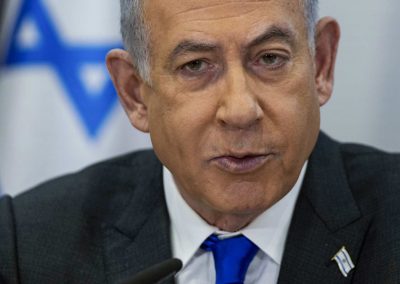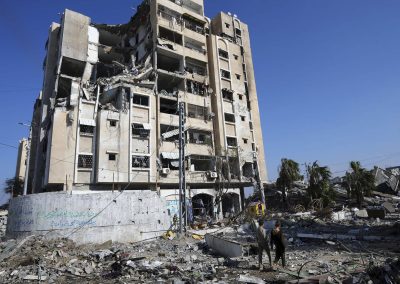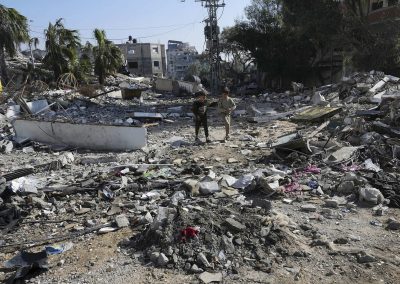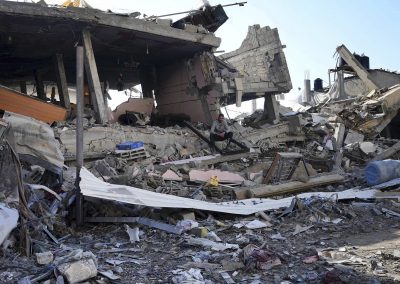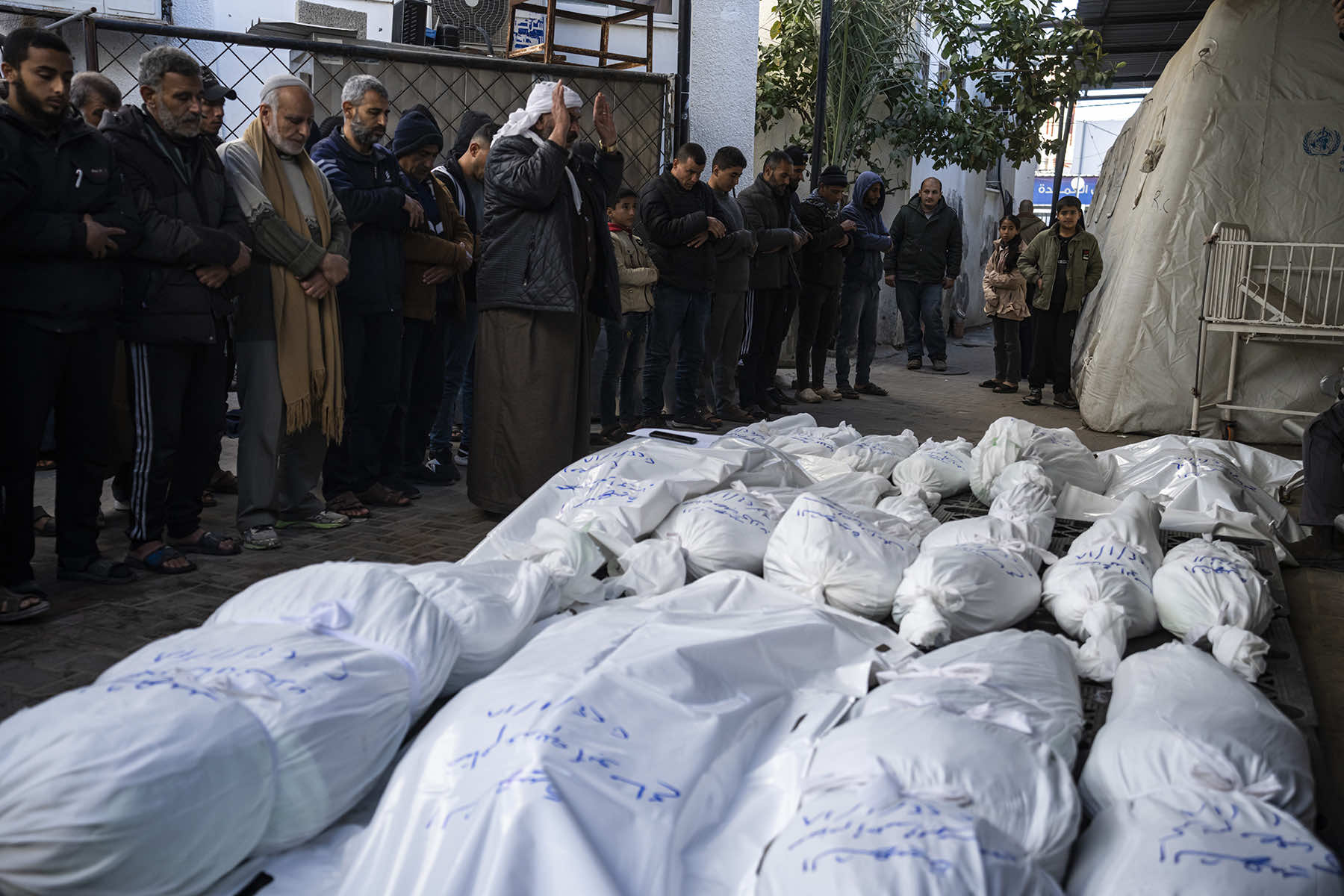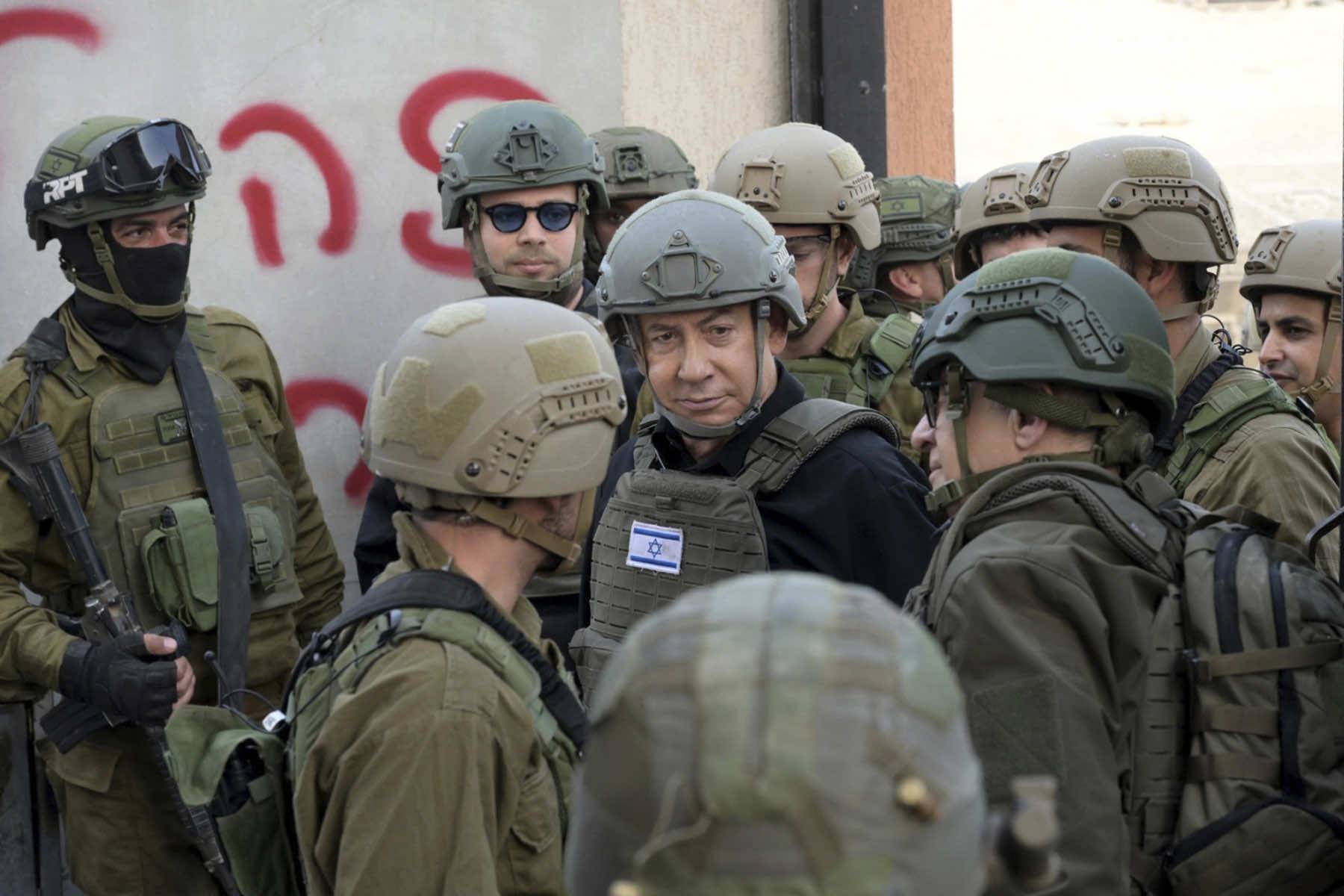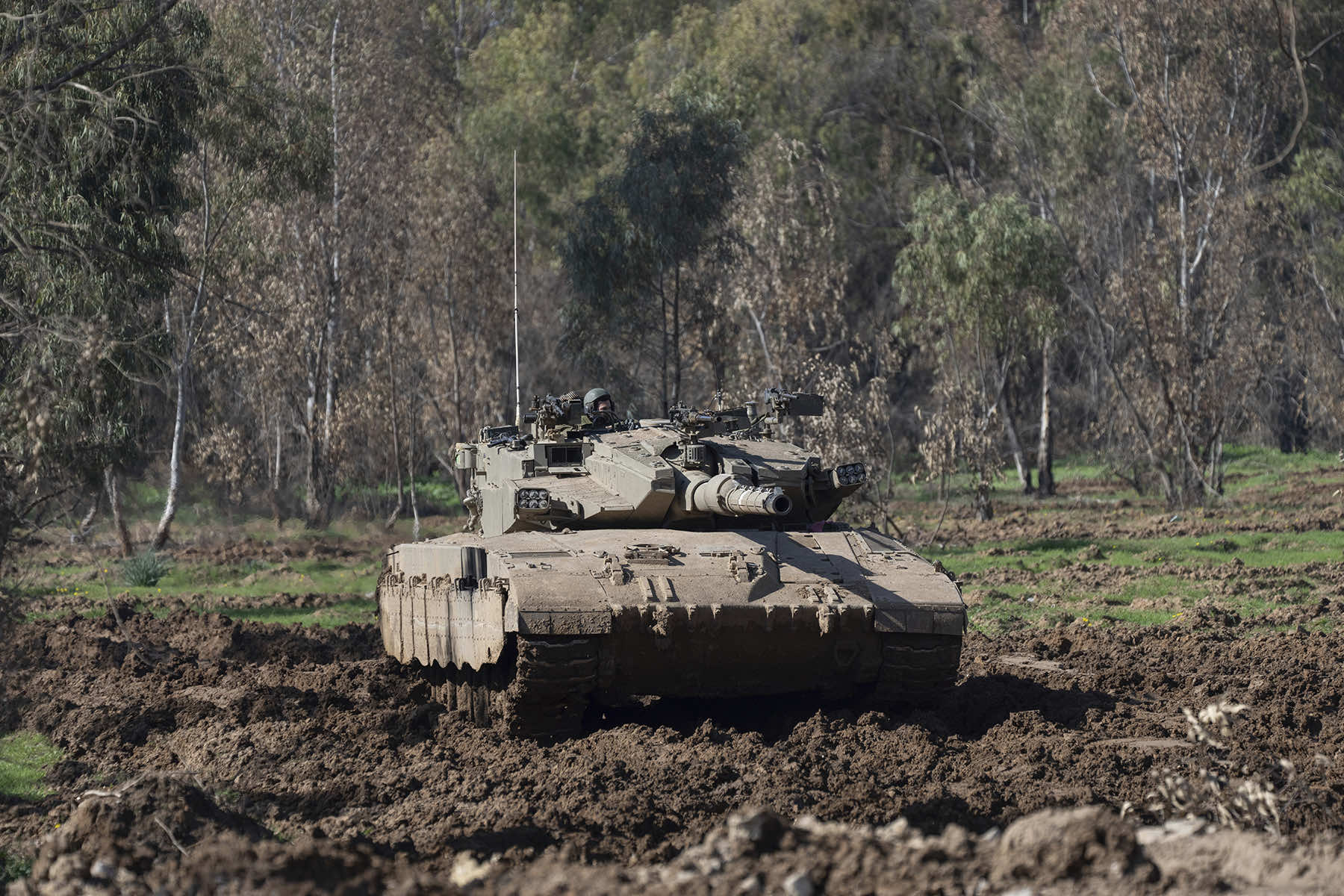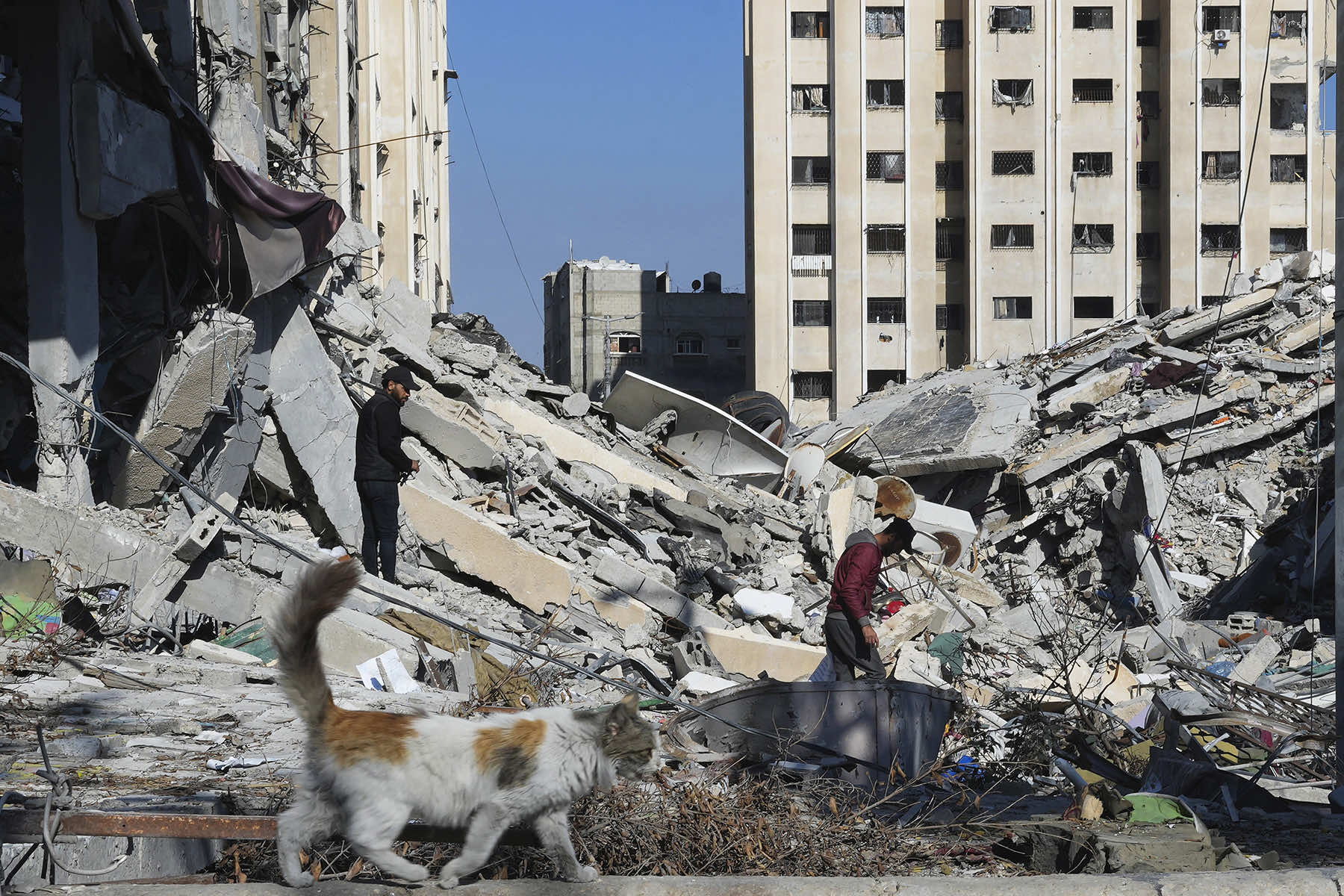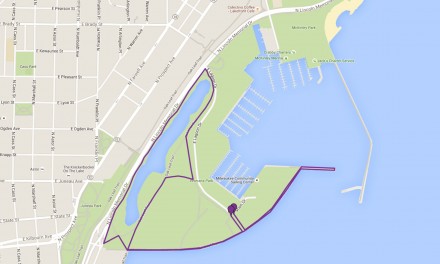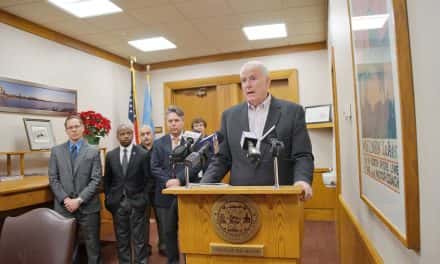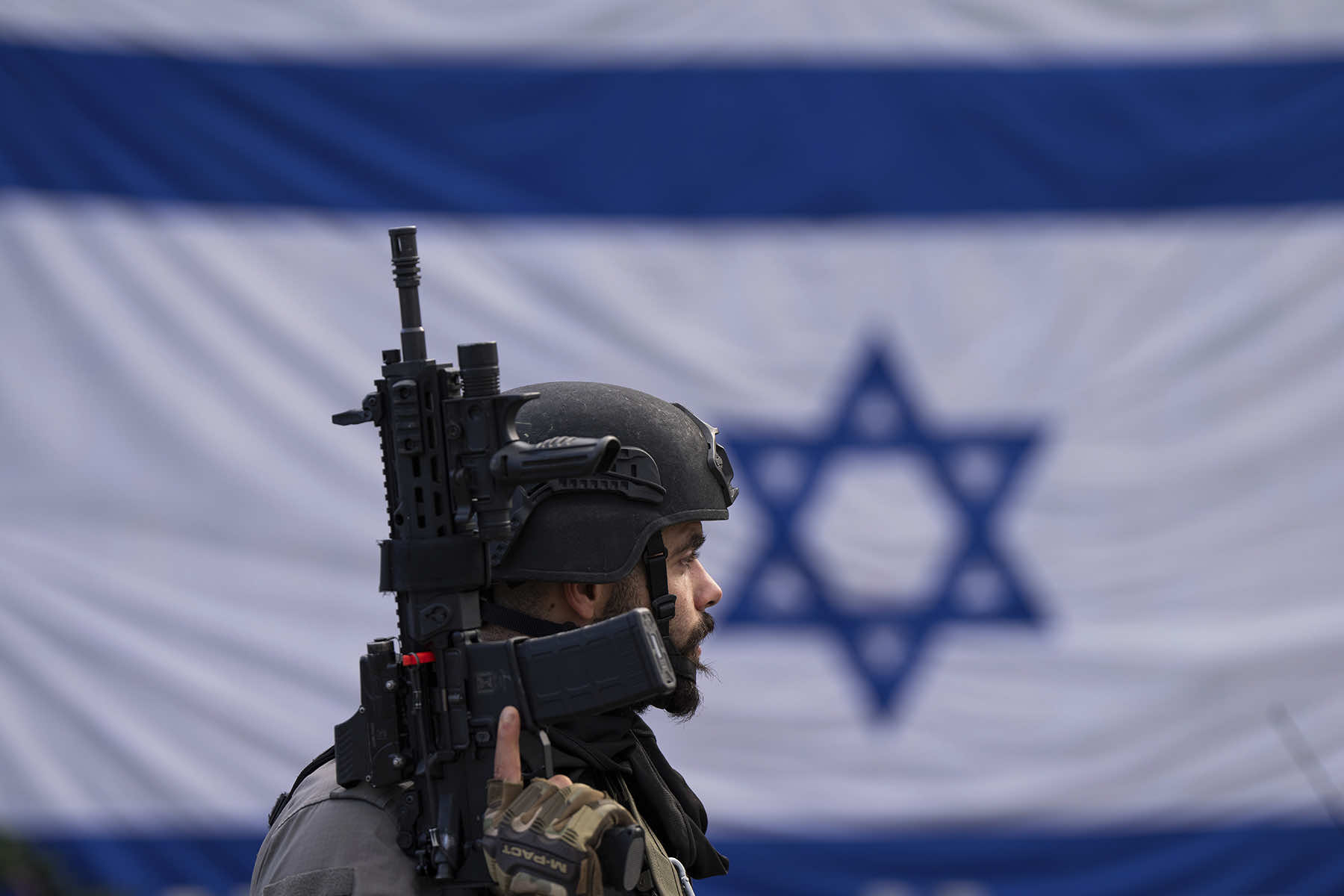
Embattled Israeli Prime Minister Benjamin Netanyahu on January 18 rejected calls from the United States to scale back Israel’s brutal military offensive in the Gaza Strip, or even consider taking steps toward the establishment of a Palestinian state after the war.
After accepting $14.5 billion of dollars of military aid and “bunker busting” bombs from the U.S., Netanyahu’s defiance drew an immediate scolding from the White House. The tense back and forth reflected what has become a wide rift between the two allies over the scope of Israel’s war and its plans for the future of the beleaguered territory.
“We obviously see it differently,” White House national security spokesperson John Kirby said.
Netanyahu spoke just a day after U.S. Secretary of State Antony Blinken said Israel would never have “genuine security” without a pathway toward Palestinian independence. The White House also announced that it was the “right time” for Israel to lower the intensity of its devastating military offensive in Gaza.
In a nationally televised news conference, Netanyahu struck a defiant tone, attacking President Biden, and repeatedly saying that Israel would not halt its offensive to destroy the Hamas militant group in Gaza.
He rejected claims by a growing chorus of Israeli critics that his goal was not achievable, vowing to press ahead for many more months. “We will not settle for anything short of an absolute victory,” Netanyahu said.
Israel launched the offensive after an unprecedented cross-border attack by Hamas on October 7 that killed 1,200 people and took some 250 others hostage. Roughly 130 hostages are believed by Israel to remain in Hamas captivity, many of whom face the very real potential of being killed by the IDF – either by snipers if they try to escape or by the indiscriminate bombing that has leveled the territory.
Netanyahu’s attitude to expand the war has also stoked tensions across the region, threatening to ignite other conflicts. Israel’s assault, one of the deadliest and most destructive military campaigns in recent history, has killed nearly 25,000 Palestinians, according to Gaza health authorities, caused widespread destruction, and uprooted over 80% of the territory’s 2.3 million people from their homes.
After four months of war, Netanyahu remains firmly in charge and continues to put up a fight of his own politically. He has increasingly used his perch as wartime leader to test campaign slogans, appease his right-wing coalition partners who have told the media they want to exterminate all Palestinians, and shirk responsibility for the entire calamity. Critics say all his efforts are done with an eye on buying time and notching up his shrinking poll numbers.
“Every moment of his life, he is a politician,” said Mazal Mualem, a Netanyahu biographer. “Bibi always thinks he has a chance.”
Netanyahu has kept a grip on power longer than any other Israeli leader, and has been a polarizing figure for the past 17 years. Critics say his aspiration for political redemption is clouding his wartime decision-making and dividing a nation striving for unity. Many Israelis view him as responsible for creating conditions for the violence.
“It is no longer the good of the country Netanyahu is thinking about, but his own political and legal salvation,” wrote military commentator Amos Harel, in the liberal daily Haaretz.
Other critics have said Netanyahu has an interest in dragging out the war to regain public support through military achievements. In addition, they accuse him of delaying any discussion of postwar scenarios to avoid looming investigations of his governmental failures.
The staggering cost of the war has led to increasing calls from the international community to halt the offensive. After initially giving Israel wall-to-wall support in the early days of the war, the United States – Israel’s closest ally – has expressed misgivings over Netanyahu’s demand for unrestricted military brutality.
President Biden urged Netanyahu to spell out his vision for postwar Gaza. The United States has said the internationally recognized Palestinian Authority, which governs semi-autonomous zones in the Israeli-occupied West Bank, should be “revitalized” and return to Gaza. Hamas ousted the authority from Gaza in 2007.
The U.S. has also called for steps toward the establishment of a Palestinian state. The Palestinians seek Gaza, the West Bank, and East Jerusalem for their state. Those areas were seized by Israel in 1967. Israel has since received the highest amount of military assistance from the U.S. compared to any other nation since World War II, with aid exceeding $124 billion.
Netanyahu is also known for his strong alliances with any government or leader that could further his political power. His relationship with former President Donald Trump – who has since been indicted with multiple criminal charges – was notably friendly. Trump approved the unpopular and controversial move of the U.S. Embassy to Jerusalem, while tacitly encouraging antisemitism from his radical MAGA followers.
Before October 7, Netanyahu was ambiguous about his position on Palestinian statehood, sometimes suggesting support under certain conditions. However, his outright rejection of a Palestinian state represented a significant hardening of his stance.
His new position puts Netanyahu at odds with President Biden, who has long been a proponent of the two-state solution. The Biden administration has signaled its intention to restore relations with the Palestinians and to pursue peace negotiations, but Netanyahu’s fierce opposition poses a significant obstacle.
Netanyahu’s refusal to consider a Palestinian state comes in part as a tactic to solidify support from his right-wing faction. Facing political challenges and legal issues at home, aligning with more conservative and nationalist elements has been his strategy to maintain power.
Without a “pathway to a Palestinian state,” Blinken said, Israel would not “get genuine security.”
Speaking at the World Economic Forum in Davos, Switzerland, Blinken said the two-state solution was the best way to protect Israel, unify moderate Arab countries, and isolate Israel’s arch-enemy, Iran.
“This truth I tell to our American friends, and I put the brakes on the attempt to coerce us to a reality that would endanger the state of Israel,” he said.
The comment prompted an immediate rebuke from the White House. Kirby said that President Joe Biden would “not stop working” toward a two-state solution.
Before October 7, Israeli society was bitterly divided over Netanyahu’s plan for a judicial overhaul. Since the attack, the country has rallied behind the war. But divisions have once again begun to surface over Netanyahu’s handling of the war.
Families of the hostages and their many supporters have called for a new cease-fire that could bring them home. Hamas released over 100 hostages in exchange for Palestinian prisoners during a weeklong cease-fire in November.
Dozens of people attended a somber gathering in Tel Aviv in solidarity with the family of Kfir Bibas, the youngest Israeli hostage, marking his first birthday. The red-haired infant and his 4-year-old brother Ariel were taken hostage along with their mother, Shiri, and their father, Yarden. All four remain in captivity.
Commentators have begun to question whether Netanyahu’s objectives are realistic, given the slow pace of the offensive and growing international criticism, including genocide accusations at the United Nations World Court.
Hamas has continued to fight back across Gaza, even in the most devastated areas, and launch rockets into Israel. It said it would not release any more hostages until there is a permanent cease-fire, something Israel and the United States, its top ally, have ruled out.
Hundreds of thousands of Palestinians have heeded Israeli evacuation orders and packed into southern Gaza, where shelters run by the United Nations are overflowing and massive tent camps have gone up.
Israel has continued to strike what it claims are militant targets in all parts of Gaza, without proof, often killing women and children. Israel insists its forces have killed roughly 9,000 militants, without providing evidence.
Medics said an Israeli airstrike on a home killed 16 people, half of them children, in the southern Gaza town of Rafah on January 18. The number of Palestinian dead soared past 25,000 on January 21.
On the same day, Israel announced the death of another hostage but did not provide details. On December 18, Israeli snipers killed three hostages who managed to escape after 65 days – shooting the half-naked men calling out for help in Hebrew.
As the war drags on, its impact continues to ripple across the Middle East, with Iranian-backed groups attacking U.S. and Israeli targets. Low-intensity fighting between Israel and Hezbollah militants in Lebanon threatens to erupt into all-out war, and Houthi rebels in Yemen have not stopped targeting international shipping despite United States-led airstrikes.

